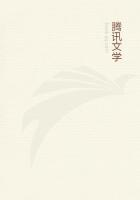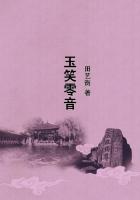I pass by rapidly the reforms of Elizabeth's reign, effected by the Queen and her ministers and the convocation of Protestant bishops and clergy and learned men in the universities. Oxford and Cambridge were then in their glory,--crowded with poor students from all parts of England, who came to study Greek and Latin and read theology, not to ride horses and row boats, to put on dandified airs and sneer at lectures, running away to London to attend theatres and flirt with girls and drink champagne, beggaring their fathers and ruining their own expectations and their health.
In a very short time after the accession of Elizabeth, which was hailed generally as a very auspicious event, things were restored to nearly the state in which they were left by Cranmer in the preceding reign. This was not done by direct authority of the Queen, but by acts of Parliament. Even Henry VIII. ruled through the Parliament, only it was his tool and instrument. Elizabeth consulted its wishes as the representation of the nation, for she aimed to rule by the affections of her people. But she recommended the Parliament to conciliatory measures; to avoid extremes; to drop offensive epithets, like "papist" and "heretic;" to go as far as the wants of the nation required, and no farther. Though a zealous Protestant, she seemed to have no great animosities. Her particular aversion was Bonner,--the violent, blood-thirsty, narrow-minded Bishop of London, who was deprived of his see and shut up in the Tower, put out of harm's way, not cruelly treated,--he was not even deprived of his good dinners. She appointed, as her prerogative allowed, a very gentle, moderate, broad, kind-hearted man to be Archbishop of Canterbury,--Parker, who had been chaplain to her mother, and who was highly esteemed by Burleigh and Nicholas Bacon, her most influential ministers. Parliament confirmed the old act, passed during the reign of Henry VIII., making the sovereign the head of the English Church, although the title of "supreme head" was left out in the oath of allegiance, to conciliate the Catholic party. To execute this supremacy, the Court of High Commission was established,--afterwards so abused by Charles I. The Church Service was modified, and the Act of Uniformity was passed by Parliament, after considerable debate.
The changes were all made in the spirit of moderation, and few suffered beyond a deprivation of their sees or livings for refusing to take the oath of supremacy.
Then followed the Thirty-nine Articles, setting forth the creed of the Established Church,--substantially the creed which Cranmer had made,--and a new translation of the Bible, and the regulation of ecclesiastical courts.
But whatever was done was in good taste,--marked by good sense and moderation,--to preserve decency and decorum, and repress all extremes of superstition and license. The clergy preached in a black gown and Genevan bands, using the surplice only in the liturgy; we see no lace or millinery. The churches were stripped of images, the pulpits became high and prominent, the altars were changed to communion-tables without candles and symbols. There was not much account made of singing, for the lyric version of the Psalms was execrable. For the first time since Chrysostom and Gregory Nazianzen, preaching became the chief duty of the clergyman; and his sermons were long, for the people were greedy of instruction, and were not critical of artistic merits. Among other things of note, the exiles were recalled, who brought back with them the learning of the Continent and the theology of Geneva, and an intense hatred for all the old forms of superstition,--images, crucifixes, lighted candles, Catholic vestments,--and a supreme regard for the authority of the Scriptures, rather than the authority of the Church.
These men, mostly learned and pious, were not contented with the restoration as effected by Elizabeth's reformers,--they wanted greater simplicity of worship and a more definite and logical creed; and they made a good deal of trouble, being very conscientious and somewhat narrow and intolerant. So that, after the re-establishment of Protestantism, the religious history of the reign is chiefly concerned with the quarrels and animosities within the Church, particularly about vestments and modes of worship,--things unessential, minute, technical,--which led to great acerbity on both sides, and to some persecution; for these quarrels provoked the Queen and her ministers, who wanted peace and uniformity. To the Government it seemed strange and absurd for these returned exiles to make such a fuss about a few externals; to these intensified Protestants it seemed harsh and cruel that Government should insist on such a rigid uniformity, and punish them for not doing as they were bidden by the bishops.















